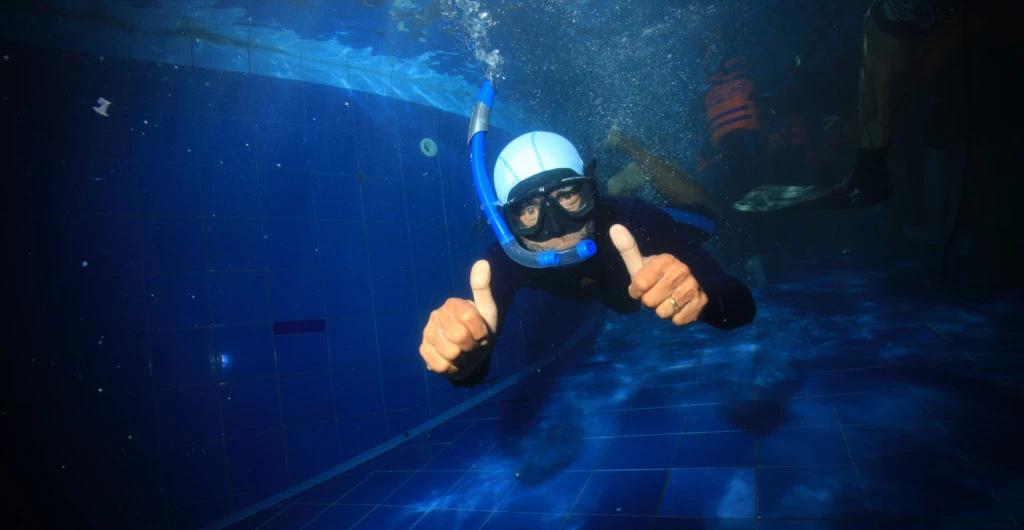Snorkeling is great way to explore the underwater world and what you can see right from the surface can be as rewarding and amazing as diving. What makes snorkeling more interesting than scuba diving is that there is no need for expensive equipment nor any special training or certification. No wonder snorkeling is a very popular activity to do in the ocean. Here are some do’s and don’ts of snorkeling that you should know before you jump in:

Do:
- Practice Well in shallow areas or in a pool, just to familiarize yourself with the gears and stretch your body to avoid cramps.
- Choose Quality Equipment that Fits Well as they are to help you with snorkeling activity. Choose mask that fits snugly and made of quality material to avoid fogging underwater, fins that fit your feet well so they don’t fall off when you kick, and a snorkel with adequate length to help you breathe.
- Get Info About the Site before you snorkel. Is it rocky or sandy? Are there any currents that might sweep you away? Being informed can prepare you more when you snorkel which includes;
- Get In and Out the Right Way like how we have talked in one of our previous blog.
- Snorkel Together with a buddy or a group so if you run into trouble there are people who can help you right away.
- Protect Yourself from sunburn and stings from marine life by wearing a wetsuit, rash guard, or coral-friendly sunscreen.
- Blow Forcefully into the Tube to clear your snorkel from water after you dive in for a closer look.
Don’t:
- Tilt Your Head as water will enter your snorkel, cutting your air supply. Keep your head horizontal to prevent this.
- Breathe Rapidly as you will burn energy faster and get fatigued. Breathe slowly, relax and enjoy the view below.
- Inhale While Diving, remember you are underwater which means your snorkel is full of water instead of air. Take a deep breath and dive down while holding your breath if you want to see things closer.
- Touch Anything, we could never know if an animal will attack and some marine creatures are venomous not to mention we could cause an imbalance if we touch something in wild. Simply view and marvel in, take only trash and plastic if you see one.
- Add In Too Much Weight if you want to dive in. Don’t carry anything even. You wouldn’t want to have trouble getting to the surface when you want to take a breath.
- Dive in With Faulty Equipment, water could go in your mask and obscure your vision or your fin could fall off and lessen your kick. Make sure you choose the equipment well up in the surface before hopping in.
- Snorkel Alone without at least a buddy. Things could turn around pretty fast at the sea and in the event of trouble, you’ll want someone else to be there to help you. Snorkel with someone who is a good swimmer or someone who knows the site well.
- Panic when you encounter problem and start to grab on people, instead float on your back and call for help.
- Snorkel Too Long, while being in the water for a long period of time doesn’t sound harmful, dehydration could come kicking in quickly especially if you are snorkeling in saltwater. Remember to get out of the water every half hour or so to rehydrate and rest before jumping back in.
Snorkeling is an easy activity you can do not only in the ocean but any open body of water, can be enjoyed by anyone and is a good introduction to scuba and free diving. Hopefully, you are more informed now about snorkeling and jump in the water soon!






